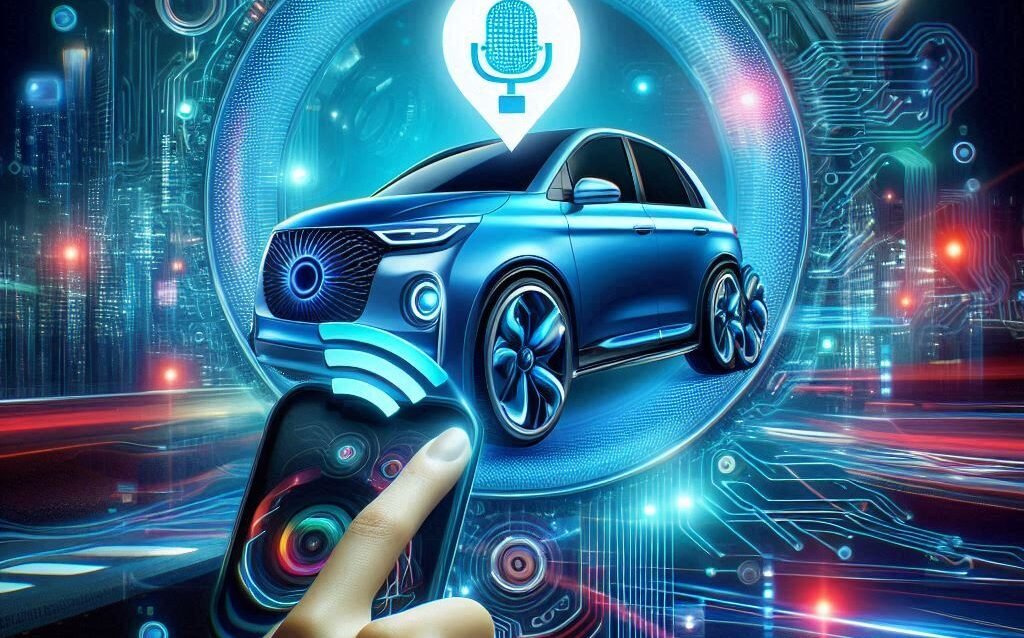The Rise of AI in Automotive Technology
The integration of artificial intelligence (AI) into the automotive sector has accelerated significantly in recent years. This rise in AI technology is transforming vehicle features, enhancing safety protocols, and revolutionizing user interfaces, thus redefining the driving experience. AI has become essential in modern automobiles, providing capabilities that were once unimaginable. Manufacturers are leveraging AI for various applications, greatly improving the functionality and appeal of their vehicles.
One of the foremost applications of AI in automotive technology is in driver assistance systems. These advanced features are designed to improve road safety by providing real-time data analysis and proactive alerts. AI algorithms process information from multiple sensors and cameras, leading to superior performance in tasks such as lane-keeping assistance, adaptive cruise control, and automatic emergency braking. By assisting drivers and monitoring road conditions, AI helps reduce the likelihood of accidents, contributing to a safer driving environment.
In addition to safety enhancements, AI significantly improves in-car entertainment systems. AI-powered voice assistants have emerged as integral components of modern vehicles, allowing users to interact with their cars through natural language commands. These systems facilitate seamless access to navigation, music, and communication, thus minimizing distractions and promoting a more engaging driving experience. With their ability to learn user preferences over time, AI voice assistants are transforming how drivers interact with technology while on the road.
This growing trend underscores the critical role of artificial intelligence within the automotive landscape. As vehicles become increasingly sophisticated, the partnership between technology companies like Qualcomm and leading software developers such as Google is crucial. Their collaboration is expected to further enhance AI capabilities in voice-assisted technologies, setting a foundational standard for the future of in-car experiences.
(Purchase today by clicking on the image)
Qualcomm and Google’s Strategic Partnership
The collaboration between Qualcomm and Google represents a significant advancement in the automotive industry, particularly in the realm of in-car technology. This strategic partnership hinges on both companies leveraging their unique strengths to create a state-of-the-art AI-powered voice assistant experience for vehicle users. Qualcomm is renowned for its prowess in processing power and connectivity, critical components that facilitate rapid data processing and seamless communication within modern vehicles. Its advanced Snapdragon platforms provide the computing foundation necessary for executing complex AI tasks with remarkable efficiency.
On the other hand, Google brings unparalleled expertise in artificial intelligence and machine learning to the partnership. The company’s cloud-based capabilities and cutting-edge algorithms are instrumental in enabling vehicles to understand and respond to natural language commands, enhancing user interaction with in-car systems. By combining Qualcomm’s hardware innovations with Google’s sophisticated AI solutions, this alliance aims to deliver a user-friendly, voice-driven interface that allows drivers to access information, manage vehicle functions, and navigate with ease.
The strategic goal of this partnership transcends merely integrating voice assistants into vehicles. Instead, it seeks to redefine the in-car experience by creating a fully connected environment. This will include features such as real-time updates, personalized content recommendations, and adaptive learning, where the voice assistant evolves based on user preferences and patterns. As both companies continue to explore new technological frontiers, the partnership positions them at the forefront of automotive innovation, transforming the way drivers and passengers interact with their vehicles in an increasingly digital world.
Features of the New AI-Powered Voice Assistant
The partnership between Qualcomm and Google has led to the development of a revolutionary AI-powered voice assistant designed to enhance the in-car experience significantly. One of the standout features of this advanced assistant is its real-time navigation capability. By utilizing advanced algorithms and an extensive dataset, it can provide drivers with accurate route suggestions, traffic updates, and alternative paths in real-time, ensuring efficient travel while minimizing delays.
Personalized communication is another hallmark of this innovative voice assistant. It can adapt to individual user preferences, recognizing voice patterns, and understanding context to facilitate seamless interactions. For instance, it can initiate conversations based on past driver behavior, preferences for music or radio stations, and even preferred routes. This enables a more tailored experience, making the user’s journey not only enjoyable but also efficient.
Smart home integration is a noteworthy feature of the new assistant as well. The AI-powered assistant can connect with various smart home devices, allowing users to control home settings such as lighting, heating, or security systems directly from the car. This feature exemplifies the growing trend of interconnected devices, offering convenience and enhancing the overall lifestyle of users who value smart technology.
Context-aware assistance further elevates the capabilities of this voice assistant. By understanding the current situation and state of the vehicle, it can offer relevant information, like reminders for upcoming appointments, news updates, or weather alerts, while taking into account factors such as the driver’s location and the time of day. These functionalities collectively create a comprehensive ecosystem that prioritizes user safety and comfort, transforming the car into a more intelligent and interactive space.
Impact on the Future of Driving and User Experience
The integration of AI-powered voice assistants into the automotive industry signifies a transformative shift in the future of driving and user experience. As vehicles increasingly become technological hubs, the interaction between drivers and cars is evolving from traditional controls to more intuitive voice-based commands. This transition not only enhances user experience by enabling hands-free operation but also significantly contributes to overall road safety. By reducing the need for physical interaction with in-car systems, AI voice assistants allow drivers to maintain their focus on the road, consequently minimizing distractions that frequently lead to accidents.
Moreover, this innovation holds profound implications for individuals with disabilities. The implementation of sophisticated voice command systems can enhance the independence of users who may struggle with conventional driving interfaces. AI assistants can facilitate navigation, control in-car features, and even communicate with other smart systems, making driving more accessible. This advancement can empower a demographic that has traditionally faced barriers in mobility, thereby promoting inclusivity within the automotive space.
As consumer expectations evolve alongside technological advancements, the demand for seamless and personalized in-car experiences will likely escalate. Drivers will increasingly anticipate AI systems that not only respond to commands but also adapt to their preferences over time. This personalization extends beyond mere convenience; it embodies a significant shift in how consumers perceive vehicle functionality and usability. The rise of AI-powered voice assistants may set new standards for user experience, pushing manufacturers to innovate continually.
Looking ahead, the synergy between Qualcomm and Google could pave the way for further advancements in vehicle automation and smart technology. With continuous improvements in AI and machine learning, cars are set to become more autonomous, intelligent, and integrated with the digital ecosystems drivers inhabit. The repercussions of this partnership underscore a commitment to enhancing both driving safety and the overall user experience, heralding a new era of automotive innovation.
(Purchase today by clicking on the image)






